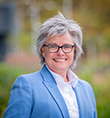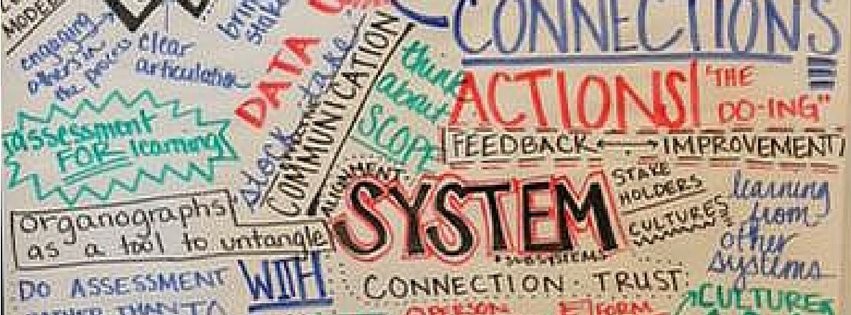Although this is my sixth “A Systems Approach to Assessment in Health Professions Education” course, my sense of excited anticipation is as strong today as it was when I first participated in this course in 2010. What a privilege it is to sit in the conference centre rotunda amongst 64 scholars and 34 faculty, from 51 schools across 12 countries.
The diversity of our community of practice in both country and profession generates exchanges and learnings well beyond the content of the course. And this is one of the many factors that create the wonderful learning experience that is a feature of all Harvard Macy Courses. I am one of the many HMI ‘repeat offenders’, having completed the Educator’s, Assessment, and Innovators courses, both as a scholar and now a regular returning scholar. I am also faculty for the Digital Citizens course (renamed Health Care Education 2.0: Transforming your Teaching for the Digital Age). Australia, Cameroon, Canada, Grenada, Lebanon, Nigeria, Qatar, Saudi Arabia, Singapore, Sweden, United Arab Emirates, and of course, the USA are represented in this 2016 iteration of the Assessment course. The diversity of professional background is the broadest I have seen, and this has made for wonderful discussions in both the small and large group settings. It’s only day 2 and already I have learnt so much from the different perspectives so freely shared.
So far in the 2016 Assessment course Liz Armstrong has instilled in us from the get go the value of systems thinking to our educational work. Five simple rules for complex systems and the Yin and Yang of academic culture provided perspectives in which to analyse our educational work through the lens of systems thinking. Tom Aretz encouraged us to reflect on the realities of communications within our professional cultural contexts, and to determine if our institutions are truly learning organisations. Connie Bowe eloquently described complex systems issues. What resonated with me was Connie’s depiction of system’s components as jig saw puzzle pieces that together add value beyond what each individual piece could achieve in isolation. John Norcini led us through the stages of assessment design, and Lou Pangaro through the several conceptual frameworks for assessing competence. The cases that kick us off each day encourage us to identify the systems issues in real life contexts, be it in the ‘spaghetti’ of a clerkship experience, the perils of building the B2 Bomber, or the building of a college that fosters innovation in teaching, learning, and graduate achievements. And we still have 3 more days to go.
An unexpected and welcome outcome of the enhanced social media presence led by Holly Gooding and Todd Fowler was a reconnection with a fellow scholar in the ‘big brain’ group of 2010. @drsuzdonnelly (Suzzanne Donnelly) tweeted from Dublin “Here’s to 2010 @harvardmacy & TheBigBrain gang” How lucky we were to have Connie Bowe as our Institutional Project Group leader. Our sessions were held in a small room in the TMEC with a very large papier-mâché brain our constant companion during the week. We believed it inspired us to even greater intellectual pursuits for both our individual projects and course learnings. We felt confident that we truly earned our self-appointed ‘big brain’ title. That same year I had Eric Holmboe as my journal club facilitator. Wow! I reflect on our group discussions to this day. Never before had I learnt so much in so little time – only four hours in total. And I discovered in John Norcini a generous and humble man whom, despite his high standing in the world of medical education, freely gave me 90 minutes of his time to advise me on how I might evaluate a redesign of the OSCE I implemented at my home institution. This OSCE was developed through my Educator’s course project, with expert guidance from my project group leaders, Karen Mann and Dan Pratt. The opportunity to so closely interact with thought leaders previously available to me only through their published works is a feature of all HMI courses, and one of the reasons I keep coming back. Another is the great friends I have made from more countries than the 12 listed above, some of whom have even made the long trek Down Under.
Like many of the testimonials I have read, I too can say that the Harvard Macy Institute courses changed my life. I have applied so much of my learnings to my teaching, resulting in teaching awards and promotion. More importantly I am a member a community of practice in which I feel strongly embedded. Professional loneliness is not something I encounter. My Harvard Macy friends are a mere tweet, email, hangout, or community post away. The year between courses flies by, and the pre-course gatherings are genuine joy filled reunions. For many of us our engagement extends beyond the Boston-based courses. We meet at conferences. We meet during institutional exchanges. We meet during holidays. We meet everywhere and anywhere possible! We share our challenges. We share our successes. We collaborate in education. We publish together. But for me, the best thing of all is that we continue to learn together.
Margaret Hay, PhD

Margaret is a psychologist who has worked in health professional education for the past decade in both curriculum governance and teaching roles. She has supervised to completion 13 Doctoral projects, and thrice nominated by her students for Supervisor Awards (2008, 2011, 2014). She holds an adjunct A/Professor position with the MGH Institute, and assists with three Harvard Macy Institute courses, and also courses delivered by Partners International for the National Health Group, Singapore. She is on the course advisory group for the Harvard Medical School MMSc degree in Medical Education.

